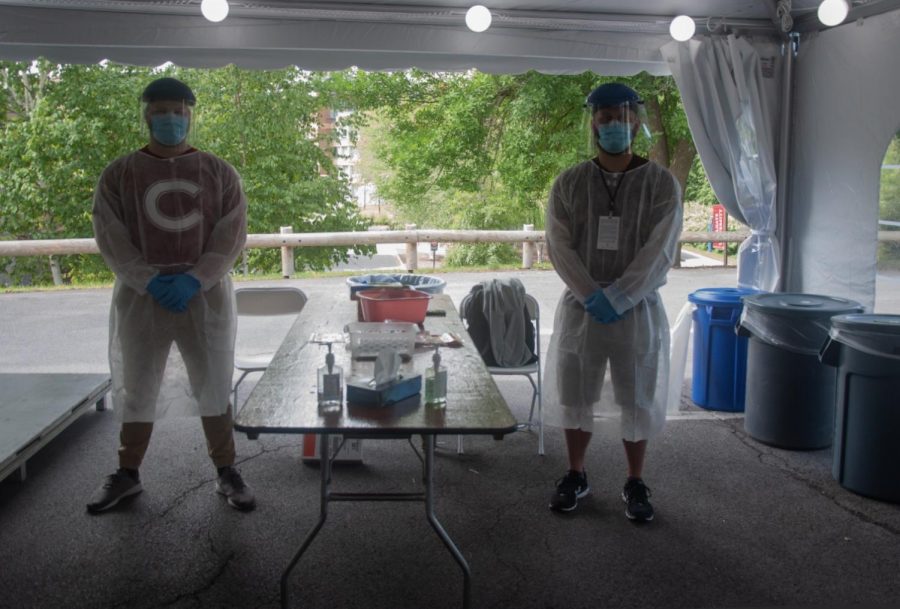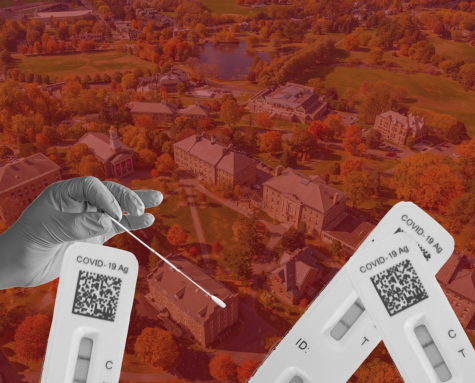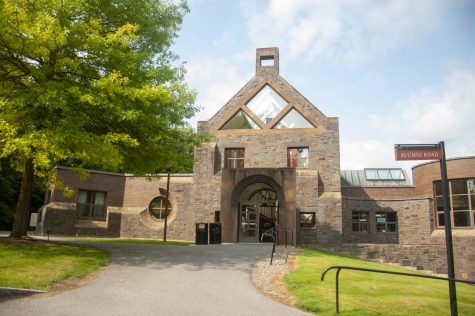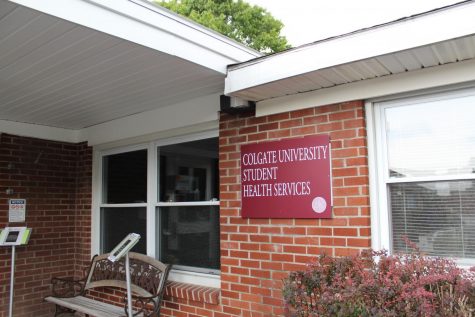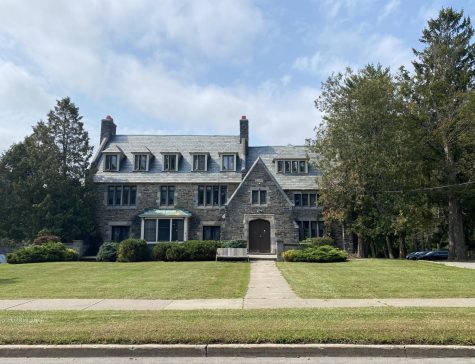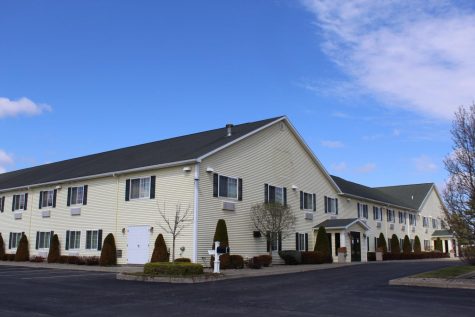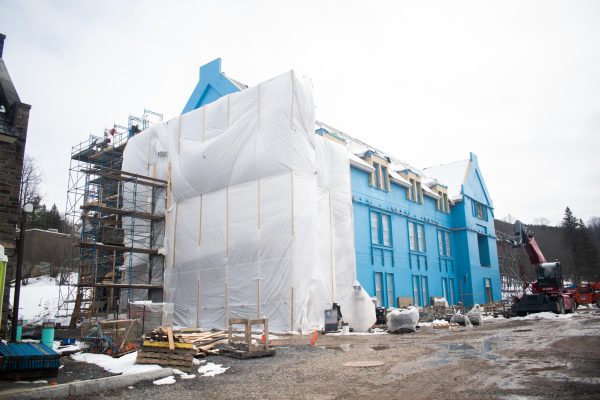Colgate Continues COVID-19 Precautions Through Mandatory Testing
Following three rounds of testing prior to and during Colgate’s universal quarantine, ‘Gate 0 of campus reopening, the University plans to move forward by testing students, faculty and staff at random for the duration of the semester. In addition to providing a negative test before returning to campus, the University utilized Aegis Scientific Lab professionals for testing all students once a week during the two-week quarantine.
Vice President for Communications Laura Jack explained that the school’s testing operations have gone very well and according to the reopening plan. She reported that Aegis Lab consistently returned most results within 48 hours of testing. As of 11:59 p.m. on Sept. 4, Colgate reported 36 positive student tests and four positive employee tests on campus.
Jack laid out the procedure for students that test positive, explaining that students are informed of their positive test either by checking the Aegis Scientific portal or by a call from either the Madison County Department of Health or Colgate Student Health Services.
“Colgate then coordinates transportation to their isolation space. Students who test positive must isolate for at least 10 days after the test date, they need to be fever free and have improved respiratory symptoms for 24 hours before leaving isolation,” Jack said.
Close contacts of students who tested positive reported that the University communicated with them immediately upon receiving the positive result. Junior Jessica Rosen, a close contact of a positive coronavirus case, spoke fondly of her interactions with Director of Student Health Services Dr. Merrill Miller.
“She told me I would get tested as soon as I wanted to,” Rosen said.
Rosen said that Miller notified her of her potential risk as soon as her contact’s test was identified as positive on Aug. 27. Along with additional testing, close contacts such as Rosen were given instructions to complete a 14-day quarantine. Students could quarantine at the Wendt University Inn, quarantine in their campus residences permitting no other students would be at risk, or return to their homes if they are within driving distance.
Junior Ellen Hamlin, who was also identified as a close contact of a positive case, said she left her room immediately for the Wendt University Inn upon receiving a night time phone call delivering the news. Both Hamlin and Rosen expressed their satisfaction with Dr. Miller and the rest of the University Health Center.
“Every time I would call, [the Health Center was] so helpful,” said Hamlin. “They definitely made the process of moving to the Wendt far easier and less overwhelming.”
Under the Colgate Together website, the University plans to test six percent of the Colgate population — including students, faculty and staff — weekly following the universal quarantine. Individuals will be selected at random based on their on-campus residence location or, for staff and faculty, campus presence. In addition, Colgate will utilize wastewater monitoring for SARS-CoV-2 genomic RNA levels in order to inform potential campus residence hotspots.
“The proteins from COVID can reveal themselves in wastewater before they can be revealed in swab testing,” President Brian Casey said in an interview with CNN on Tuesday.
Casey explained that using wastewater samples, in addition to the highly sensitive Aegis Lab COVID-19 tests, will allow the university to identify and isolate potential outbreaks within different residences on campus.
Greta Ferdinand is a senior from Portsmouth, NH concentrating in mathematics with a minor in philosophy. She has previously served as news editor and contributes...


